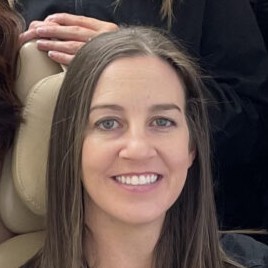Short answer? Absolutely.
When you buy a dental practice, you’re not just buying equipment, charts, and office space—you’re investing in goodwill. And one of the best ways to preserve and transfer that goodwill from the seller to you is through the practice’s staff.
Why? Because for most patients, the staff is the practice.
Staff = Trust
Here’s what we often see in practice sales, particularly in the St. Louis area:
A letter goes out to patients announcing the seller’s retirement. Almost immediately, patients call the person they’re most familiar with—often the receptionist or hygienist—and ask:
“What’s the new dentist like?”
That moment is gold.
You want the staff member to say something like:
“Oh, Mrs. Smith, Dr. New is really nice. I think you’ll really like them.”
This kind of endorsement is powerful. The seller’s written recommendation is one thing—but a personal, genuine staff validation carries enormous weight. It helps patients feel confident staying with the practice.
Staff Retention = Patient Retention
If Dr. Seller is stepping away, their patients need a new provider. Most would prefer to stay at the same location, with the same familiar faces.
The continuity of staff provides a sense of comfort and stability. When patients see the same hygienist, assistant, or receptionist, the transition feels natural.
Of course, it’s up to you—Dr. New—to live up to those recommendations. Patients may not comment on your margin integrity or composite layering technique, but they will notice:
“My dentist is kind and doesn’t hurt me.”
That’s how trust starts. And over time, that comfort grows into loyalty.
Why Would Staff Want to Stay?
Simple. Most of them want what patients want—stability.
If you maintain their current:
- Salaries
- Benefits
- Seniority
- Work culture
…they have every reason to stay. They already know the systems, equipment, office flow, and most importantly—each other.
That said, a few may choose to leave:
- Some may retire alongside the doctor.
- Others may leave for personal reasons (commute, family needs, etc.).
- The seller can usually give you a heads-up on these situations.
Handle Change with Care
As the new owner, you’ll eventually want to make some changes—and that’s normal. But early on, it’s critical to:
- Avoid big changes too quickly.
- Communicate clearly and openly.
- Get staff “buy-in” before implementing new policies.
For example, altering office hours can affect child care for staff. Expanding clinical days or changing workflows might seem like improvements, but even positive changes can cause disruption if introduced too abruptly.
Tip: In many cases, staff have been wanting change—they just didn’t feel empowered under the previous owner. Give them a voice, and they may become your biggest allies in evolving the practice.
What About Problem Employees?
Not every staff member will be a perfect fit. Occasionally, you’ll inherit a “toxic” employee—a subject we’ll cover in a future blog. But the takeaway here is: Don’t overhaul the team based on assumptions.
Focus on building relationships first. Identify your top performers. Build trust with the team just as you would with patients.
Final Thoughts
If you’re buying a dental practice, staff retention isn’t optional—it’s essential. The goodwill you’re purchasing hinges on keeping patients comfortable and confident in their care. And no one can help you do that better than the existing team.
Treat them well, involve them in your vision, and transition thoughtfully. In return, they’ll help you preserve the heart of the practice—and grow it into something even stronger.
– Bill Otten & Kim Rey








